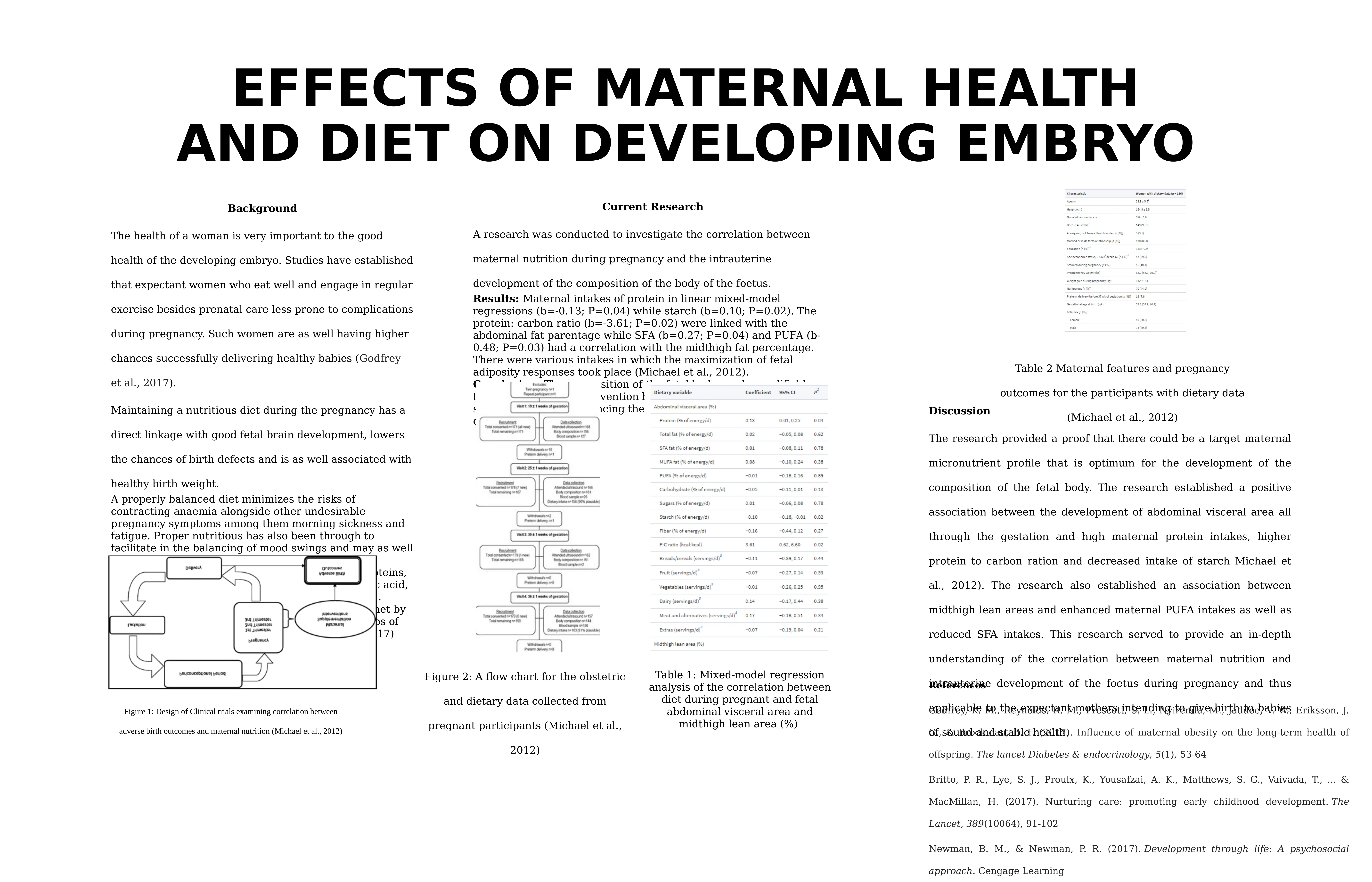SCIE1060: Effects of Maternal Health and Diet on Embryo Development
VerifiedAdded on 2023/06/09
|1
|729
|185
Project
AI Summary
This scientific poster project, developed for the SCIE1060 course, investigates the significant impact of maternal health and diet on the development of embryos. The research highlights the correlation between maternal nutrition during pregnancy and the intrauterine development of the fetus, emphasizing the importance of a balanced diet including proteins, calcium, vitamin C, whole grains, adequate fat, folic acid, fruits, and vegetables. The poster summarizes studies that have established the link between maternal nutrition and fetal body composition, as well as the potential to influence the risk of future diseases. The findings underscore the importance of nutritional interventions to optimize fetal health and reduce the chances of birth defects. The project also examines the benefits of prenatal care, exercise, and a balanced diet to minimize pregnancy complications and ensure the delivery of healthy babies. The poster includes key findings from the research, which provides an in-depth understanding of the correlation between maternal nutrition and intrauterine development of the foetus during pregnancy.


![[object Object]](/_next/static/media/star-bottom.7253800d.svg)